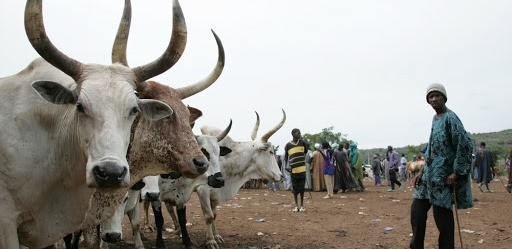Sudan, South Sudan agree to strengthen cooperation on animal health

Sudan and South Sudan signed today a Memorandum of Understanding (MoU) to safeguard animal health and sanitary measures in the two countries’ cross-border areas.
The Sudanese Minister of Animal Resources and Fisheries Alameldin Abdullah Absher Abdullar and South Sudanese Minister of Livestock and Fisheries James Janka Duku inked the agreement in Juba.
This comes after bilateral meetings to launch the cross-border governance structure of the MoU and development of the harmonized vaccination calendar.
The Food and Agriculture Organization of the United Nations (FAO) through funding from the European Union (EU) and in collaboration with the Intergovernmental Authority on Development (IGAD) Center for Pastoral Areas and Livestock Development (ICPALD) supports pastoralist communities through prevention and control of transboundary animal diseases (TADs) through vaccination campaigns, epidemio-surveillance, early warning systems and promotes livestock trade in the areas along the border between Sudan and South Sudan.
“The inter-relationship and connection between the people of Sudan and South Sudan has been evident in these past months like never before in the history of the two countries. This is yet another milestone in building this relationship in the hearts of the people through a resource, which both value immensely,” said Meshack Malo, FAO Representative in South Sudan.
“This signature is a direct contribution to cohesion and peace building,” he added.
South Sudan has more than 36 million livestock and 108 million in Sudan which represents the backbone of livelihoods and socio-economic status of most communities in the two countries.
However, the contribution of this huge livestock resource to South Sudan’s economy is estimated at a meager three percent of the gross domestic product (GDP) due to a low level of commercialization. In Sudan, livestock contributes more than 25 percent to the national GDP.
The agreement is expected to improve the livestock based livelihoods of transhumance and sedentary communities in cross border areas.
Implementation of the cooperation arrangement will be through several structures that will be jointly established by the ministries of the two countries. These will include a Joint Steering Committee (JSC) and a Multidisciplinary Technical Working Team, both with rotational leadership structures. The joint structure will be guided and supported by the cross border local administration and national ministries.